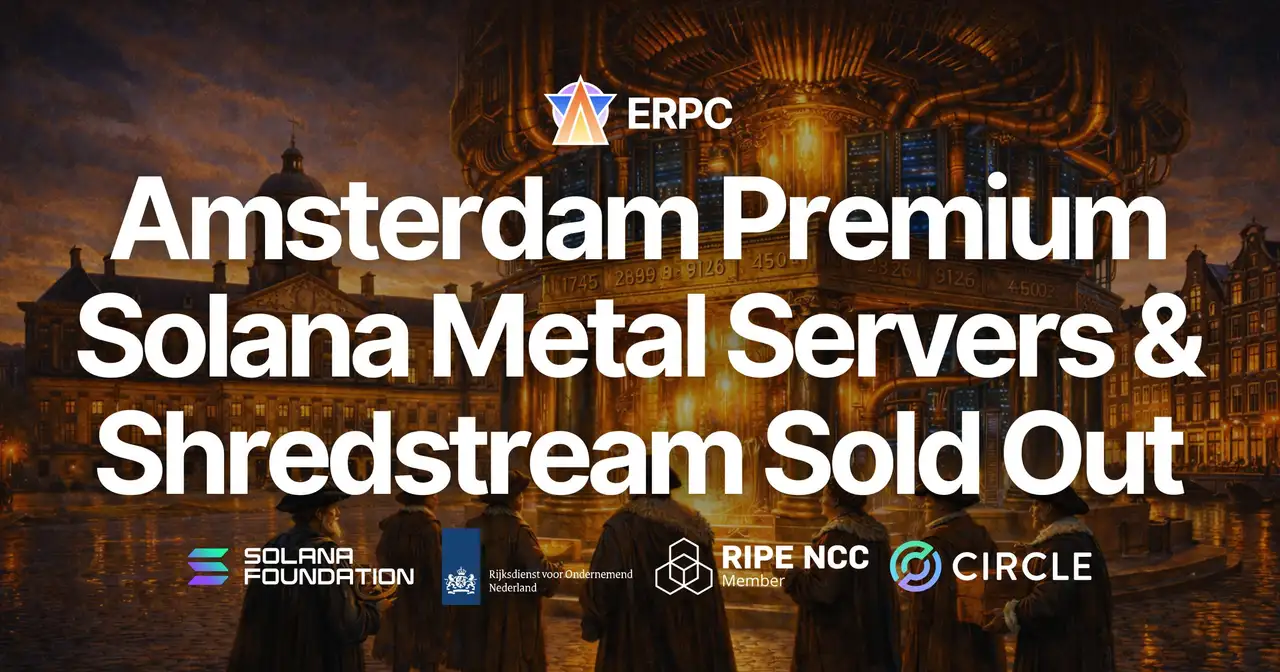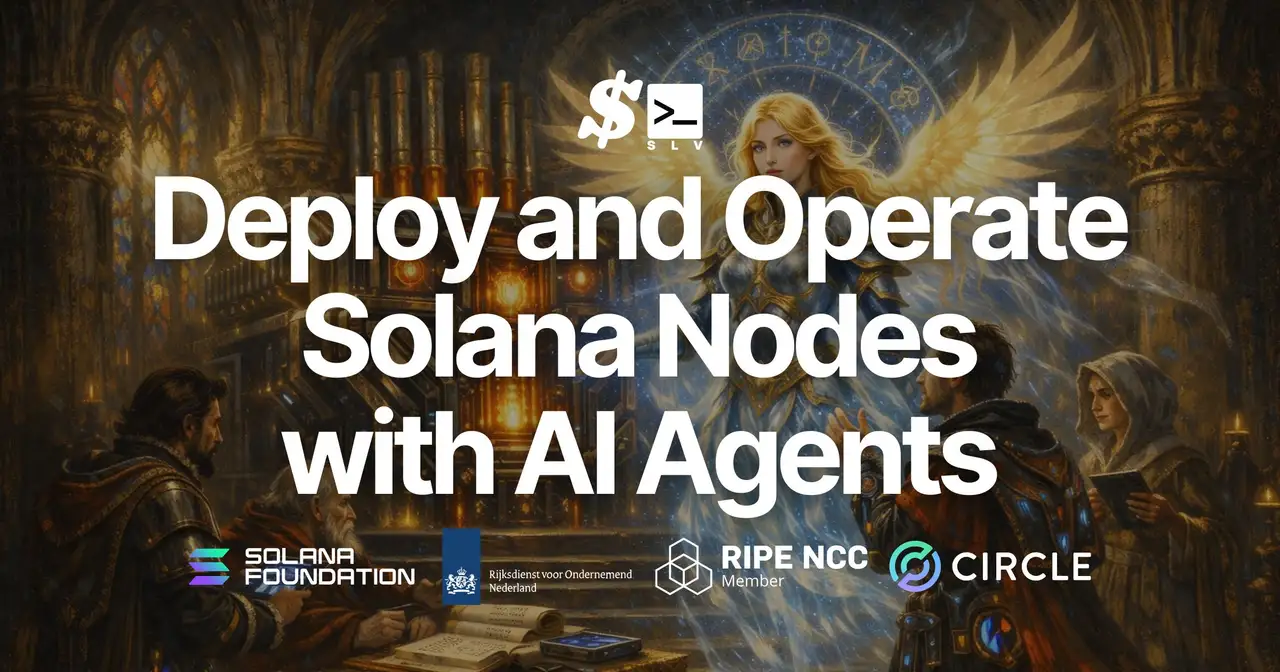ERPC Launches Pre-Orders for the “Dedicated Zero Distance Node” to Pursue Ultimate Solana Performance
ERPC Launches Pre-Orders for the “Dedicated Zero Distance Node” to Pursue Ultimate Solana Performance
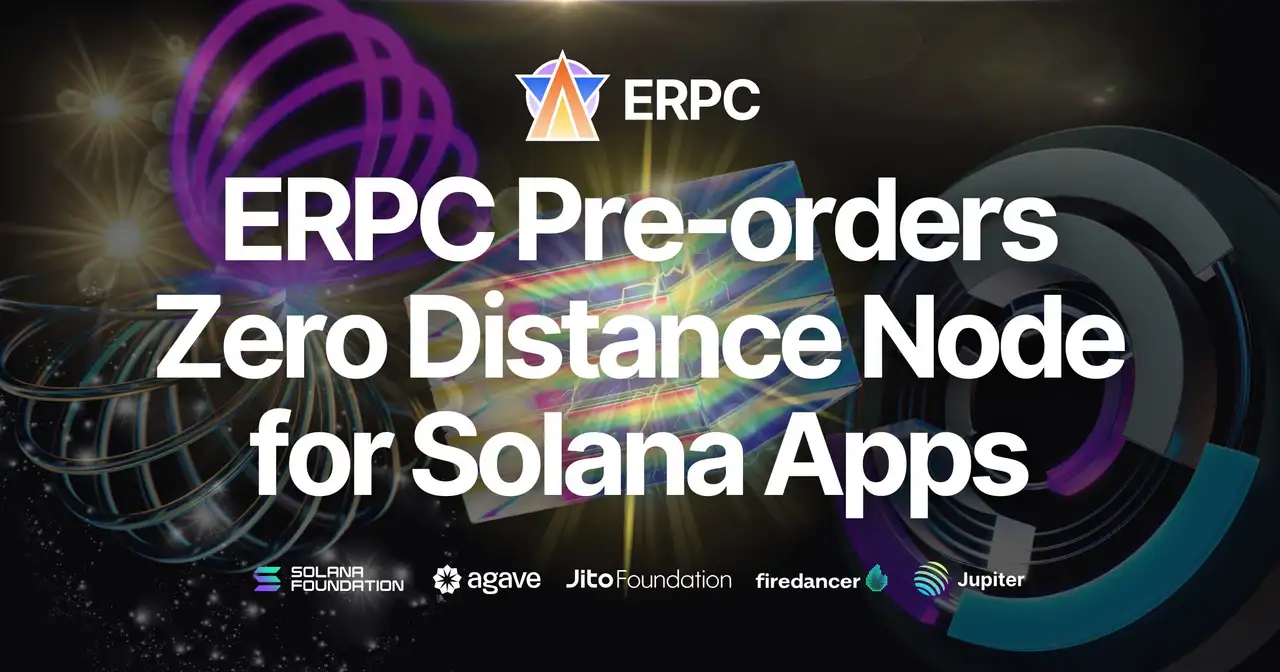
ELSOUL LABO B.V. (Headquarters: Amsterdam, the Netherlands; CEO: Fumitake Kawasaki) is pleased to announce the launch of its “Dedicated Zero Distance Node,” a result of extensive research and battle testing aimed at delivering a faster Solana experience. Pre-orders are now open.
After extensive exploration of node configurations that enable high-speed and stable application execution, we have determined that “Zero Distance Communication”—in which the Solana RPC server and a dedicated bare-metal server are directly connected on the same private switch—is the optimal approach for achieving the highest performance. We have already received numerous inquiries from traders and high-frequency trading (HFT) users, and we anticipate further growth in demand going forward.
Commitment to High Performance and Ultra-Low Latency
We have long aimed to achieve industry-leading ultra-low latency. In fact, we have received substantial feedback—especially from traders for whom differences of just a few milliseconds in transactions or slots can affect outcomes—and have continuously improved our systems based on those insights, earning high praise in the process.
Meanwhile, we often hear reports that “renting a proprietary RPC node from another provider and running a Solana application on it directly turned out to be slower than using our shared RPC.” This frequently stems from running multiple programs on a single machine, which deprives Solana RPC of the resources it needs to optimize performance.
Even if you prepare top-grade CPUs and memory or believe your program to be lightweight, running an application on the same node inevitably leads to resource contention, ultimately reducing performance. Solana RPC is designed to deliver maximum throughput when it operates independently, so avoiding competition with other processes is essential.
Moreover, because Solana RPC is often targeted by attackers, neglecting adequate security measures can compromise the entire node and degrade its processing efficiency.
At ERPC, in addition to basic security protocols, we implement dynamic security measures as well, ensuring the stability of Solana RPC.
The Conclusion Drawn from Research and Battle Testing
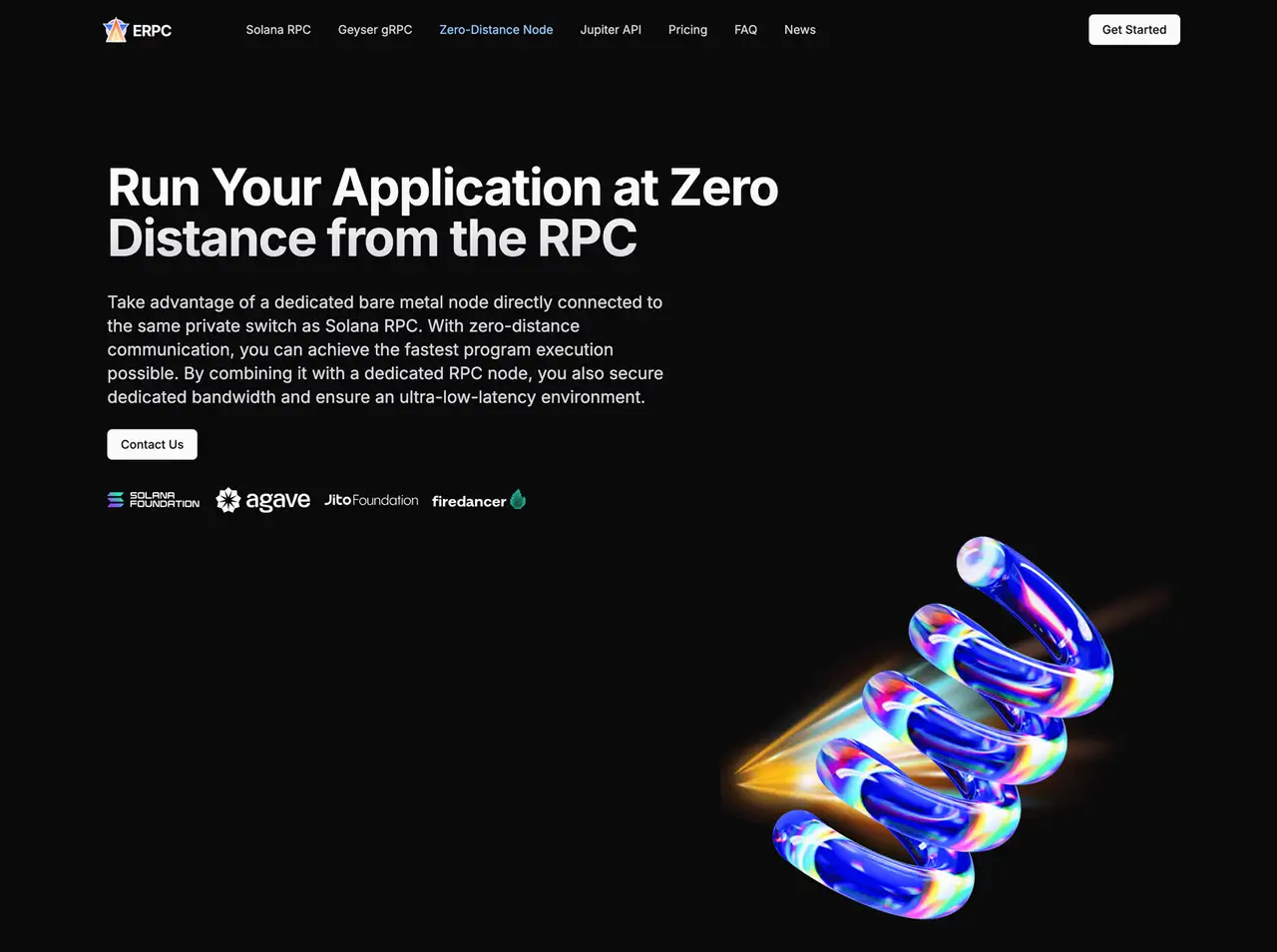
Through long-term verification and real-world testing, we have confirmed that physically separating Solana RPC from the application while bringing them “virtually zero distance” from a network perspective is key to achieving maximum performance.
- Allow the RPC to focus exclusively on RPC tasks: By rigorously managing the RPC component—which is at high risk of attack—and fully utilizing hardware resources such as CPU and memory, the node can maintain stable request processing even during peak times.
- Isolate the application on a dedicated bare-metal server: Instead of running both on a single node, the application runs on a separate high-performance server, preventing resource conflicts. Each side can then access maximum processing power.
- “Zero Distance Communication” on the same private switch: By eliminating extra network paths between the node and the application, network latency can be reduced. As physical distance is a major factor affecting performance, this direct connection achieves overwhelmingly faster speeds.
Thanks to this system, even if one side experiences heavy load, neither interferes with the other, and both can operate at peak performance.
Effective with Both Dedicated and Shared RPC
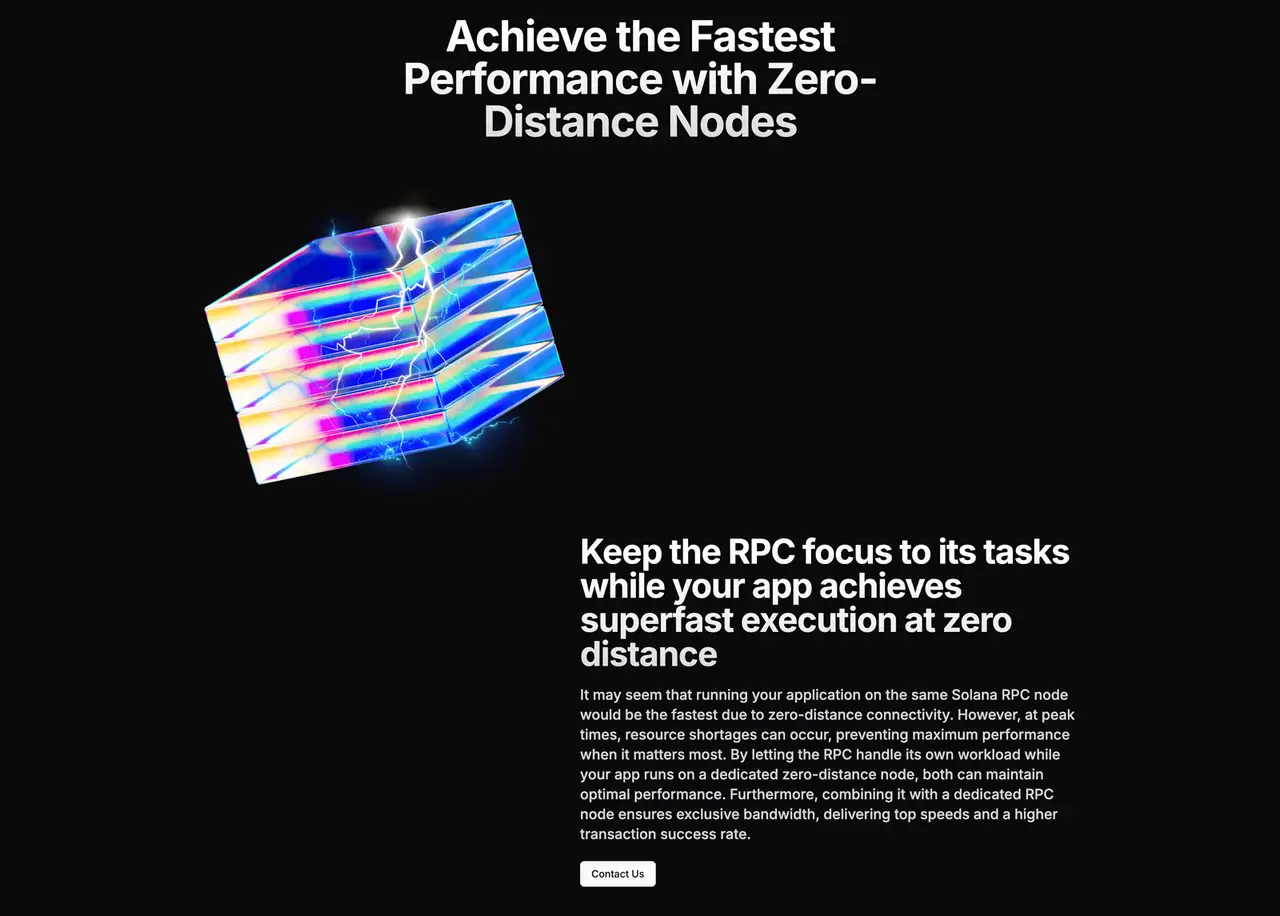
For the highest transaction success rate, combining this solution with a “dedicated RPC” is ideal. However, simply connecting the “Dedicated Zero Distance Node” to our shared RPC on the same private switch also yields far better performance than a typical remote setup.
- Even if you can’t expect the same transaction success rate as a dedicated RPC, implementing a zero distance node alone can greatly reduce latency, resulting in improved speeds in many cases.
- It minimizes the risk of attacks and resource contention, facilitating smoother transaction processing.
Resource Availability and Regional Expansion
We have already received numerous inquiries regarding both this node and dedicated RPC nodes, which has led to a shortage of resources for Solana RPC and bare-metal servers. At present, it takes about one to two weeks to secure servers, and with increasing demand, this timeframe may grow longer.
- Initial supported regions include Amsterdam, Frankfurt, Ashburn, and Tokyo.
- We plan to expand to New York, London, Paris, and other regions in the future.
If you need a high-speed environment urgently, we strongly recommend placing your order during this pre-order period.
Future Outlook
We will continue developing high-performance Solana infrastructure to support ultra-low latency applications in various fields. Building on our accumulated expertise, we plan to further refine system architecture and strengthen security, helping a wider range of users fully leverage Solana’s speed.
Further Information / Contact
ERPC Official Website: https://erpc.global/
Validators DAO Official Discord: https://discord.gg/C7ZQSrCkYR



